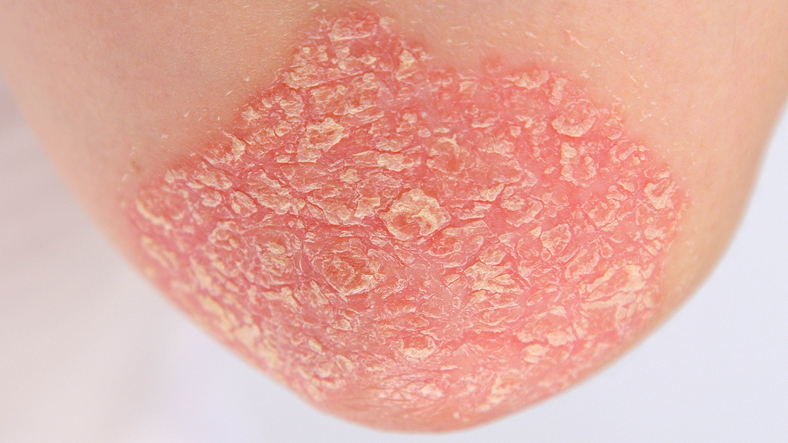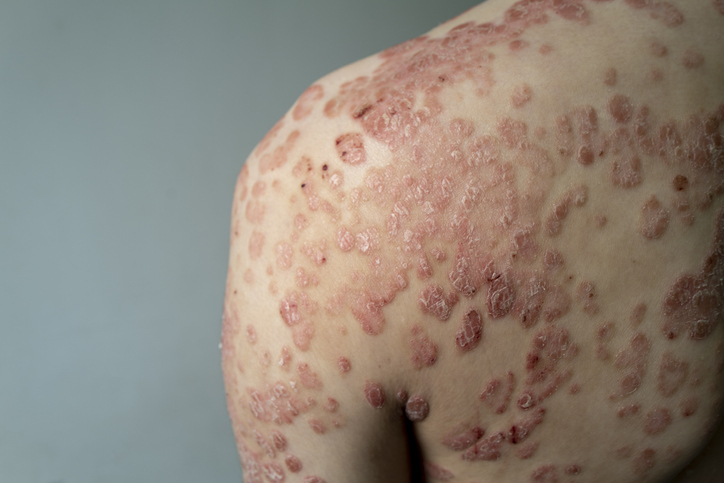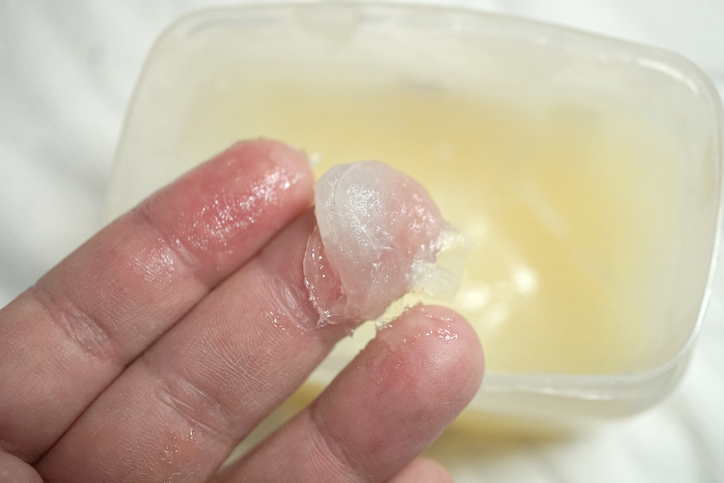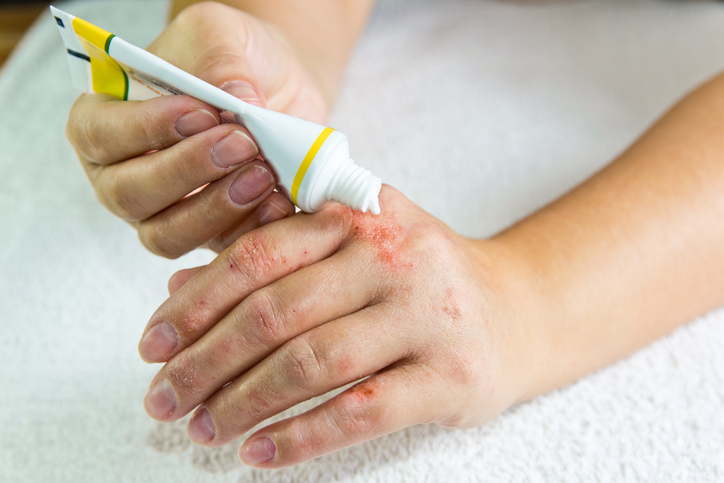Pain
What Is Psoriasis?
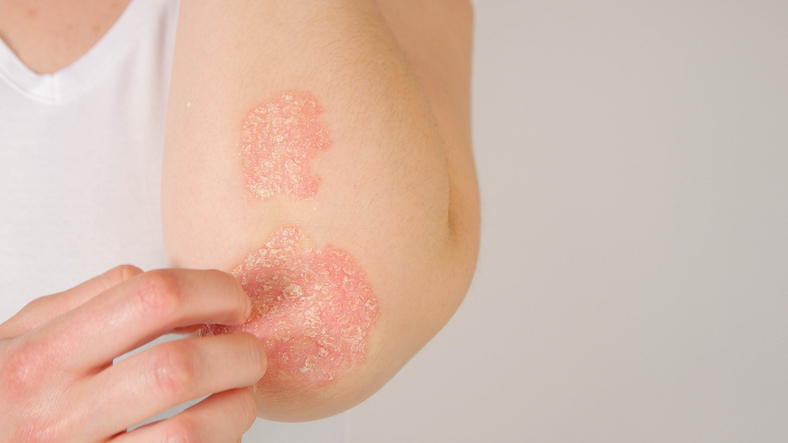
Psoriasis is an autoimmune disease that causes skin cells to multiply up to 10 times faster than normal. Symptoms most commonly occur in cycles, flaring for a few weeks or months, then subsiding or going into remission; however, it may also be monophasic, meaning symptoms only occur once.
Symptoms
There is a wide spectrum of severity and manifestations of psoriasis. Common symptoms of psoriasis include the following:
- Red patches of skin covered with thick, silvery scales
- Dry, cracked skin that may bleed or itch
- Small, scaly spots (commonly seen in children)
- Itching, burning or soreness
- Thick, pitted or ridged nails
- Swollen, stiff joints
Psoriasis may present as pin-sized spots or large plaques. Eruptions may be localized to small areas, like the palms of the hands and soles of the feet, or may be widespread and cover most of the body. Sometimes, the swollen and stiff joints that occur due to psoriatic arthritis are the first and only sign of psoriasis. There are other symptoms associated with certain types of psoriasis:
- Pustular psoriasis is characterized by small, pus-filled bumps (pustules) on the skin.
- Erythrodermic psoriasis is characterized by a peeling, extensive red rash.
Causes
Psoriasis is thought to be caused by a dysfunction of both the innate immune system and the acquired immune system, which makes it an autoimmune disease with autoinflammatory components. The innate immune system serves as the body’s first line of defense against pathogens. The acquired immune system takes over if the innate immune system is unable to destroy a pathogen.
Mistaking healthy cells for pathogens occurs with all autoimmune diseases. With psoriasis, the immune system mistakenly attacks healthy skin cells. Psoriasis is often triggered or exacerbated by infections and often runs in families, characteristics common of autoinflammatory diseases.
Risk factors
The following factors are associated with an increased risk of developing psoriasis:
- Family history of psoriasis
- Recent bacterial, viral or fungal infection
- Stress
- Obesity
- Smoking or alcohol abuse
- Certain medication (e.g., antimalarial, beta blockers, etc.) use
- Injury to the skin, such as a cut or severe burn
- A preexisting autoimmune disease
